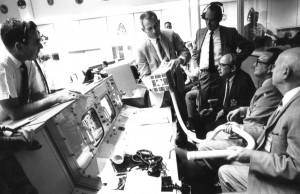
When it comes down to it, what are we really committed to? How can we test our integrity, our true priorities and principles? How do people judge our choices and interpret our values? How do we show what we think is important? The answer is startlingly simple. In the words of a valued former colleague, Derek Middleton, whom I worked with many years ago,
“You show your commitments by what you say and what you do“
Derek implied that he was quoting someone else, but I have yet to find a source in the intervening years, so I will attribute it to him.
The statement is far from a banal truism. It is a test of character:
- Do we link what we say with what we do?
- Do we do the things which we say are important?
- Do we say the things which we know are important?
- Do we prioritise our actions just as we do our words & ideas?
Lets face it – are we really committed? We can apply this to our ethics, our respect of others, our work values, our plans, goals, priorities, sense of self, use of time. It forces us to be honest with ourselves, to reject the excuse: ‘I haven’t got the time‘. It is about self-management and real priorities.
Analogies from the worlds of sports and entertainment tend to fail in these discussions; dedication tends to be relatively time-bound (to achievement, excellence or skill acquisition) and is a relatively poor relation to true commitment; what we say & what we do.
Reading:
Coppin, A. and Barratt, J. (2002) Timeless Management, Palgrave MacMillan, NY
Covey, S. (1989) 7 Habits of Highly Effective People, Simon & Shuster, New York, NY.
Lovell, J. and Kluger J. (1994) Lost Moon – the perilous voyage of Apollo. Houghton Mifflin, NY




 Throughout our lives we are educated to make rational decisions. What are the costs, what are the benefits, what are the impacts, what is possible? These are relatively easy elements to learn. Unfortunately our experience tells us that things don’t always work out as planned.
Throughout our lives we are educated to make rational decisions. What are the costs, what are the benefits, what are the impacts, what is possible? These are relatively easy elements to learn. Unfortunately our experience tells us that things don’t always work out as planned.





